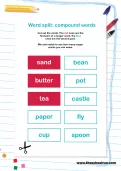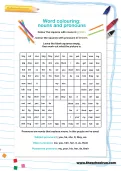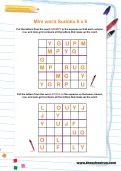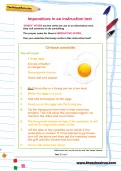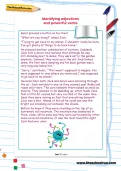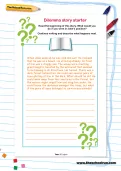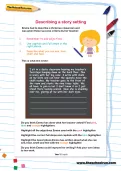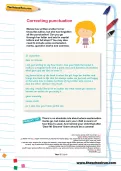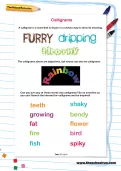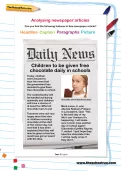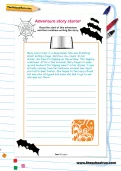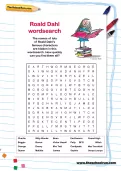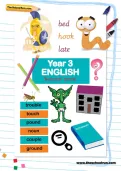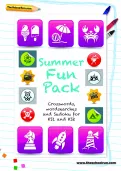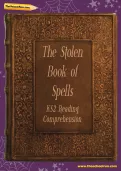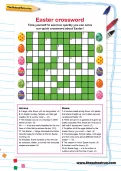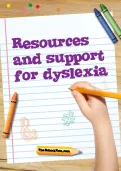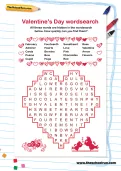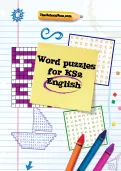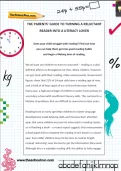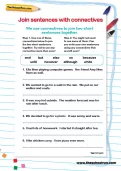‘Bossy’ verbs are the verbs we use in an information text; they tell someone to do something. The proper name for them is imperative verbs. Can you underline the bossy verbs in this instruction text?
or
Register to add to your saved resources
Already a subscriber? to view this content.
A Year 3 English worksheet created by a primary school teacher to help your child understand and identify adjectives and verbs.
Read this adventure story. Can you identify the adjectives and powerful verbs that the author has used to make this piece of writing interesting to the reader?
or
Register to add to your saved resources
Already a subscriber? to view this content.
Jake is in a dilemma! Read the beginning of this story. What would you do if you were in Jake’s position? Continue writing and describe what happens next.
or
Register to add to your saved resources
Already a subscriber? to view this content.
Emma had to describe a Victorian classroom and was given these success criteria by her teacher: remember to add adjectives; use capitals and full stops in the
right places; describe what you can see, hear, smell and feel. Has Emma done what her teacher asked?
or
Register to add to your saved resources
Practise adding punctuation to a letter, including capital letters and full stops, exclamation marks, question marks and commas with this teacher-made worksheet.
Maisie has written a letter to her favourite author, but she has forgotten all the punctuation! Can you go through her letter and add in capital letters and full stops? You may also need to include some exclamation marks, question marks and commas.
or
Register to add to your saved resources
Already a subscriber? to view this content.
Think of two books you have read, both written by the same author. Can you compare them? Write a short description of the plot of each book. Give three examples of how the books are different. Which book did you prefer? Why? Give three reasons why you enjoyed it more.
or
Register to add to your saved resources
Already a subscriber? to view this content.
Can you turn any of these words into calligrams? Be as inventive as you can! Search the internet for calligrams and be inspired!
or
Register to add to your saved resources
Already a subscriber? to view this content.
Can you find the following features in this newspaper article? Headline, caption, paragraphs, picture.
or
Register to add to your saved resources
Mary was in bed, in a deep sleep. She was dreaming about eating a huge, delicious ice-cream. In her dream, she heard a tapping on the window. The tapping continued. After a few seconds, Mary began to wake up and realised the tapping wasn’t in her dream... What do you think happens next? Continue writing the story.
or
Register to add to your saved resources
Already a subscriber? to view this content.
A fun Roald Dahl wordsearch for primary school children, created by a teacher and featuring the names of Roald Dahl's famous characters!
Witches, foxes, earthworms and more – they're all wonderful characters from Roald Dahl's books. See if you can spot the names of 20 children, villains and creatures from The BFG, Danny the Champion of the world, Charlie and the Chocolate Factory and other Dahl classics in this wordsearch. How quickly can you complete it?
or
Register to add to your saved resources
Help your child's imagination soar – and then recount their adventures on paper! The Year 3 English booster pack will help them revise punctuation, persuasive text and more, but there are plenty of encounters with witches and conversations with elephants in the garden to keep them interested along the way.
or
Register to add to your saved resources
Already a subscriber? to view this content.
Keep boredom at bay with some brilliant puzzles for KS1 and KS2! Your child will need to use all their spelling and numeracy skills to solve wordsearches, crosswords, Sudoku and Wordoku – and there are a few extra challenges to keep them busy, too!
or
Register to add to your saved resources
Already a subscriber? to view this content.
Reading comprehension doesn't have to be dull! The Stolen Book of Spells offers KS2 students an engaging story, challenging questions and a riddle to solve – they'll be so immersed in the narrative they won't even realise they're working on their literacy. Answers are provided so you can mark your child's work and help them improve their ability to comprehend, decode and interpret what they read.
or
Register to add to your saved resources
Already a subscriber? to view this content.
Eggs, buns, flowers and bunnies - and chocolate, of course! Prepare for the school holidays by testing your knowledge of all things Easter-related with this quick crossword.
or
Register to add to your saved resources
What is dyslexia? Who does it affect and what are the key signs a child might be dyslexic? The Resources and support for dyslexia pack offers a complete overview, from how dyslexia is identified to at-home support strategies, expert tips to encourage a love of reading and links to further resources and advice.
or
Register to add to your saved resources
Already a subscriber? to view this content.
Love is in the air... and in this wordsearch! Have fun finding the words in this Valentine's-themed puzzle for KS1 and KS2 children.
or
Register to add to your saved resources
Are you and your child tired of the same old English revision and practice sessions? Try something completely new and give them these fun English word puzzles instead! They'll review everything from connectives to apostrophes, using what they learn in class to solve codes, crosswords and wordsearches.
or
Register to add to your saved resources
Already a subscriber? to view this content.
Why are some children reluctant to read, and what can you do to help them fall in love with books? From exploring non-fiction to making reading a feel-good pleasure, we explain how you can turn a reluctant reader into a bookworm. Happy reading!
or
Register to add to your saved resources
Already a subscriber? to view this content.
Choose which connectives you'd like to use to join the sentences in this worksheet
or
Register to add to your saved resources
Already a subscriber? to view this content.
Help your child practise using similes by completing these phrases to make comparisons.
or
Register to add to your saved resources
